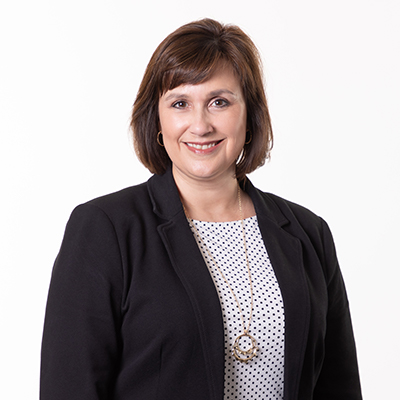There are countless New Year’s resolutions out there: work out more, become more organized, give up a vice – and the list goes on.
Women and Money: Avoiding Healthcare Expense Mistakes in Retirement
Women generally have a long list of to-dos that can feel never ending. More often than not, last on the list is “take care of myself.” The repercussions of that oversight can be damaging when it comes time to retire.
The Bezos Effect: 3 Big Things Corporate Boards Need to Do About Succession Planning

Many successful leaders tend to be nonconformists. They often demonstrate individualism at an early age and aren’t afraid to break a few rules. It’s part of what makes them so successful. But their risk-taking behavior, especially in their personal lives, can present unique challenges for the boards that manage their companies.
What would happen to a company’s business plan or board of directors if, say, the Chairman of the Board decided to take a rocket ship into space? Or, a board member faced a health concern that changed everything?
An NPR segment, Corporate Boards Find It Difficult To Limit Executives’ Risk-Taking Hobbies, highlighted these questions and the critical need for corporate boards to plan for inevitable, albeit unpredictable, change. While succession planning isn’t going to grab any juicy headlines, it is the tried and true method for mapping the long-term viability of a company.
So how does your organization get started on this journey? Here’s a hint – You don’t have to touch the edge of space to get going. Here are the three big things corporate boards need to do about succession planning right now.
CREATE: Creating a written succession plan is the first step to providing stability to the organization during times of crisis and change. This will be a living, breathing document that will be updated over time, but the first charge is to outline the steps that the board will take to fill a position whether it was vacated due to an emergency or a planned departure.
IDENTIFY: Identify potential leaders both inside and outside the organization who align with your corporate goals to fill these vacated positions. Viewing this process as a way to develop and mentor strong leaders for your organization will also get the board motivated to make progress on this step.
MEASURE: Measure your progress by holding outgoing interviews with retiring or exiting board members. I also recommend an annual board performance assessment that is both self-reflective and evaluated by fellow board members. Ongoing policy review and analysis will ensure that the succession plan is executable. Making succession planning a mandatory annual agenda item for discussion at board meetings is key.
Policy adherence begins at the top and the board must lead by example. Proactive succession planning puts your organization and your stakeholders at ease no matter what arises…..even if it’s a rocket ship.
All investment and financial opinions expressed are intended as educational material. Advisory products and services offered by Investment Adviser Representatives through Prime Capital Investment Advisors, LLC (“PCIA”), a federally registered investment adviser. PCIA: 6201 College Blvd., 7th Floor, Overland Park, KS 66211. PCIA doing business as Prime Capital Wealth Management (“PCWM”) and Qualified Plan Advisors (“QPA”). Securities offered by Registered Representatives through Private Client Services, Member FINRA/SIPC. PCIA and Private Client Services are separate entities and are not affiliated.
Women and Money: Financial Security
Many women today find that they are in charge of their financial lives either by choice or by chance. Over the next two generations, women will inherit an astounding 70 percent of the money in this country.[1] When asked the question “Do you feel financially secure?” a high percentage of women answer with a resounding “no”. This is gravely concerning to us as financial advisors. Even though women’s financial power is growing, too many of us are still leaving the financial decision making to others.
By allowing our spouse or partner to take the lead on financial matters, we may effectively reduce or even eliminate our own knowledge of money and finances. This could economically crippling in the event of a divorce or death. Does this describe you?
Lessons from our Parents.
Many young women grow up getting advice about how to dress and who to date, but few of us get financial education from our parents. However, you may have learned more than you think, simply by observation.
If you saw your parents struggle with spending and debt, you may find yourself walking the same road. If your parents were lifelong savers who had a habit of living within their means, your attitude toward money may be wholly different. Watching as they amassed wealth for the future over time may have created a good and realistic model for a healthy retirement savings.
You may have grown up with very little understanding of the way investment markets or retirement plans work, but the more you educate yourself in financial topics, the more confident and assertive you will become regarding money decisions.
Don’t Set it and Forget it.
A recent study found that while women participate in employer-sponsored retirement plans more often than men, only 43 percent of women had an emergency fund and only about a quarter bothered to rebalance their investment portfolios with time.[2] You are off to a great start by participating in your employer-sponsored retirement plan; however, it’s equally important to regularly review how your portfolios are allocated to align with your retirement goals.
Knowledge is Power.
When you acquire more financial knowledge, you can shatter money myths that may have crept into your life and replace them with money truths. You can see your financial behavior in a new light and adjust that behavior to give yourself a better chance at amassing significant retirement savings and lifetime wealth.
What steps can you take today toward financial security?
- Talk with a financial professional who recognizes some of the common mistakes female investors make and who will counter them with wise approaches to saving and building wealth for retirement.
- Don’t be afraid to “pay yourself first” in your employer’s retirement plan.
Featuring Lisa Jones
Meet Lisa Jones! Lisa is the managing director for our Springfield, MO office. She focuses on professional financial consulting for individuals and businesses including 401(k)/403(b) plans, and specializes in retirement and estate planning. Lisa has always wanted to help people and has found a passion in breaking down complex financial topics and making them relatable. She is a powerful figure for women in leadership. In a dominate male industry, she understands that a woman seeking advice might be more open or comfortable with a female advisor, and enjoys representing other women in this capacity.
Lisa received her Bachelor of Science degree from Missouri State University and is a member of Women in Financial Services. She loves to travel to new places in her free time, and her favorite place to travel is overseas where her grandson lives. Lisa also loves music and enjoys playing the piano or attending live music events with her husband.
—
Advisory services offered through Prime Capital Investment Advisors, LLC (“PCIA”), a federally registered investment adviser. PCIA: 6201 College Blvd., 7th Floor, Overland Park, KS 66211. PCIA doing business as Prime Capital Wealth Management (“PCWM”) and Qualified Plan Advisors (“QPA”). Securities offered through Private Client Services (“PCS”), member FINRA/SIPC, and any related communication on this website is strictly intended for individuals residing in the states of: AL, AK, AZ, AR, CA, CO, CT, DC, FL, GA, ID, IL, IN, IA, KS, KY, LA, ME, MD, MA, MI, MN, MS, MO, MT, NE, NV, NH, NJ, NM, NY, NC, OH, OK, OR, PA, SC, SD, TN, TX, UT, VA, WA, WI, WY. PCIA and PCS are separate entities and are not affiliated.





